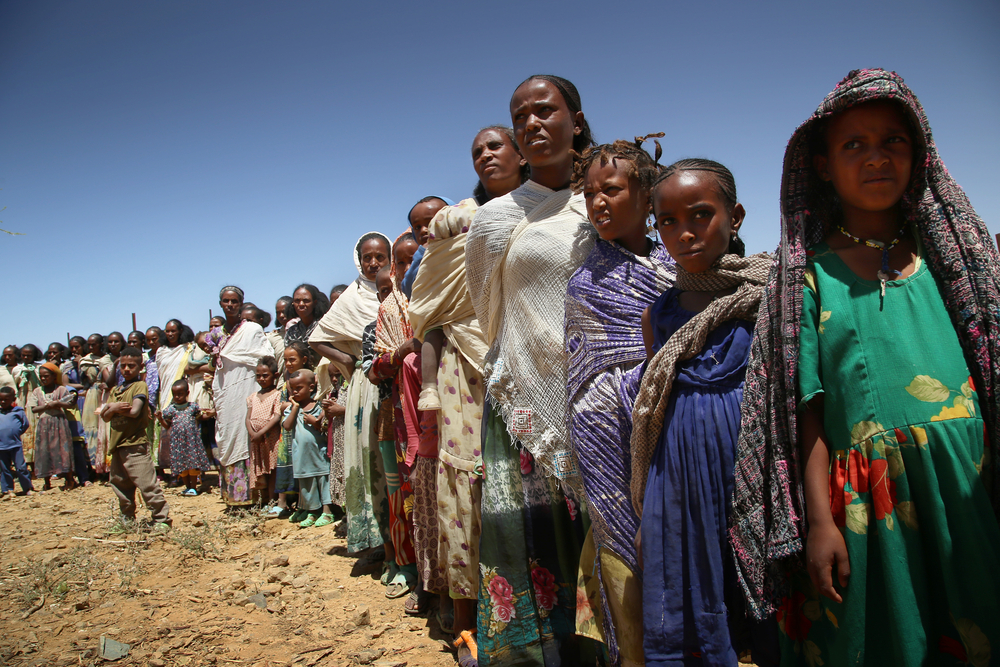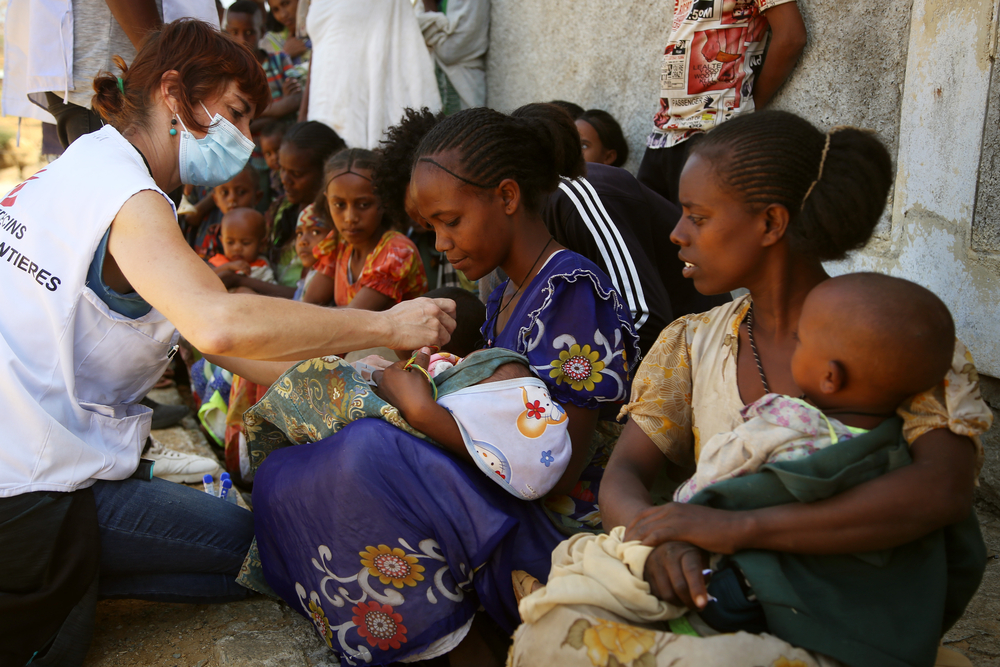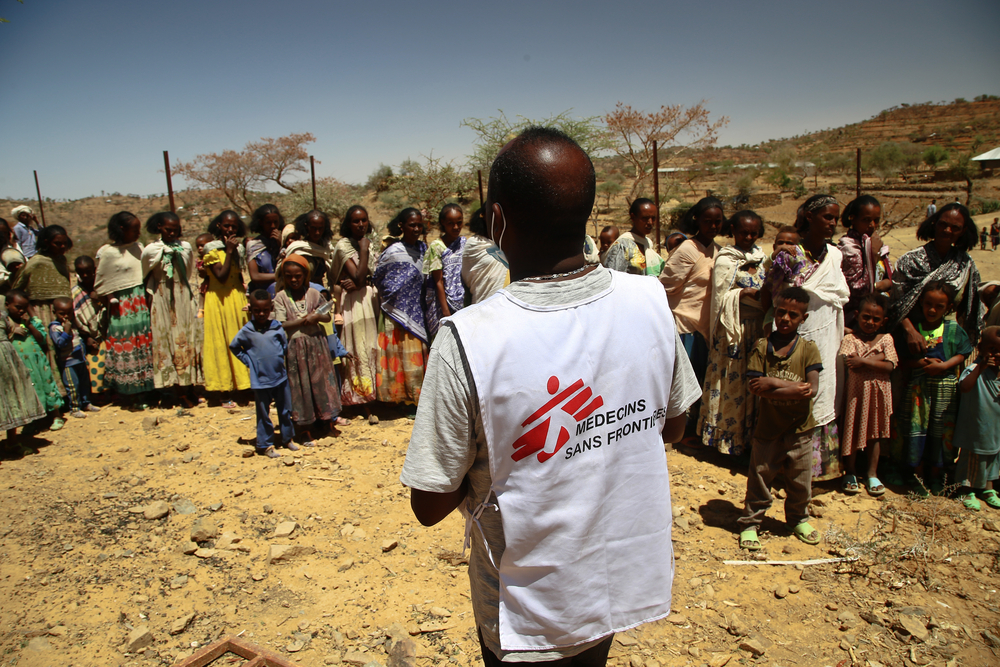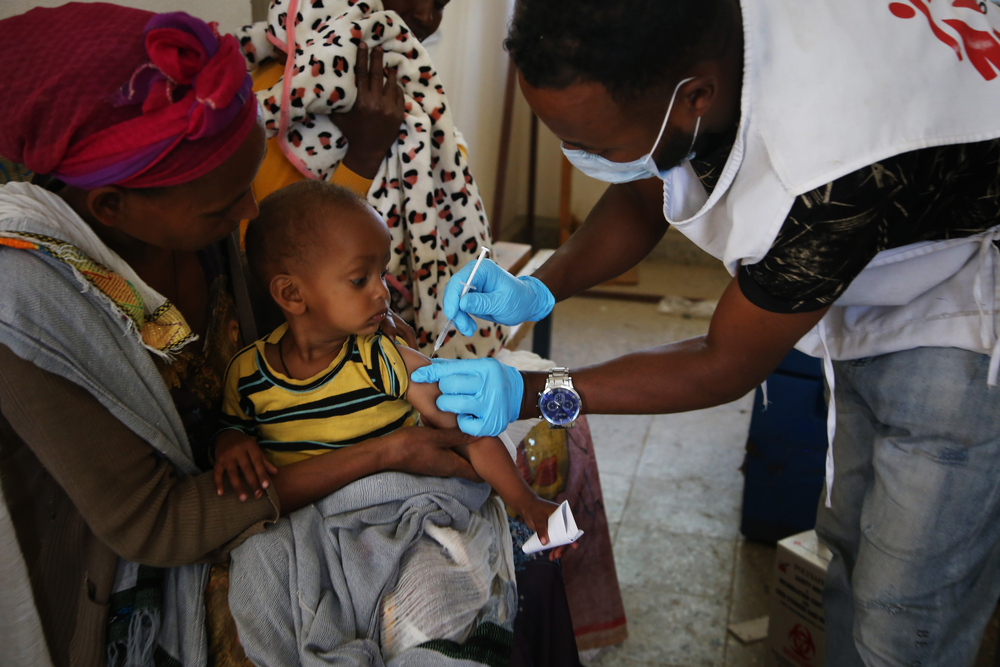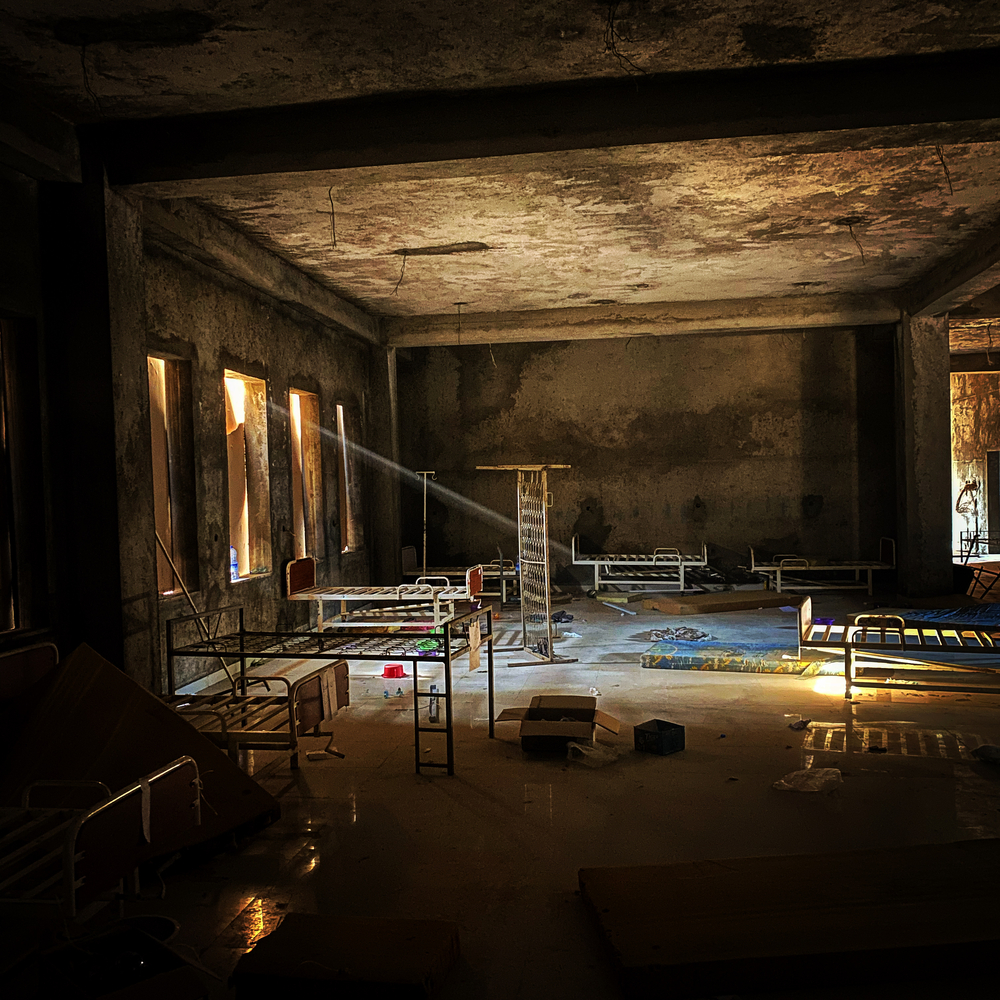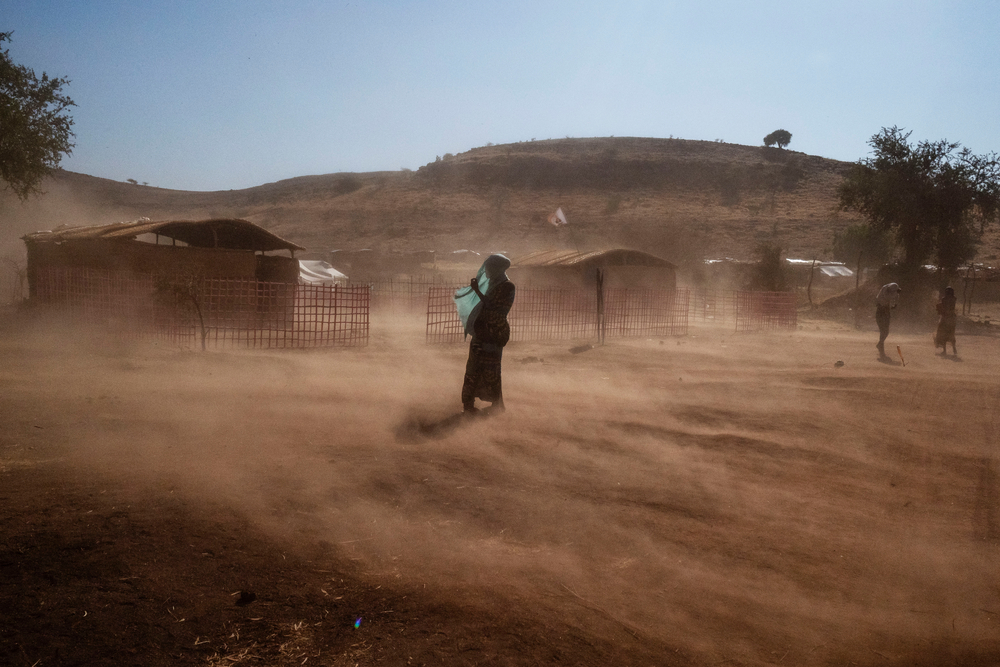When a small MSF mobile team reached Adiftaw for the first time in mid-March, they found the health post had been looted and partially destroyed. Medical files, broken equipment and torn medicine packets were strewn across the floors of every room, none of the beds had mattresses, no medical staff were present.
Adiftaw is a village in Ethiopia’s conflict-hit Tigray region, situated three hours north of Axum along hilly dirt roads. What the team found was nothing new and echoed their experiences on almost every visit to a new place anywhere across Tigray, from east to west and from north to south.
In the months since November, the 10,000 people living in and around Adiftaw have been unable either to see a doctor or be referred to a hospital for specialist care. Soon after the MSF team had cleaned up the health post and opened a temporary mobile clinic, dozens of people showed up, arriving slowly but steadily from all directions.
Mostly they were mothers carrying small children wrapped on their backs. But others arrived too: young men carried an elderly man, apparently sick with malaria, sitting on a wooden chair attached to an improvised stretcher; several elderly women appeared, their bodies aching from chronic conditions. However, not everyone got the help they sought. The medical staff were focusing on children, pregnant women and people needing emergency care.
About an hour after starting triage, MSF staff had to announce they could not let any more patients in that day, as the medics simply did not have capacity to see anyone else in the three-hour window for consultations.

